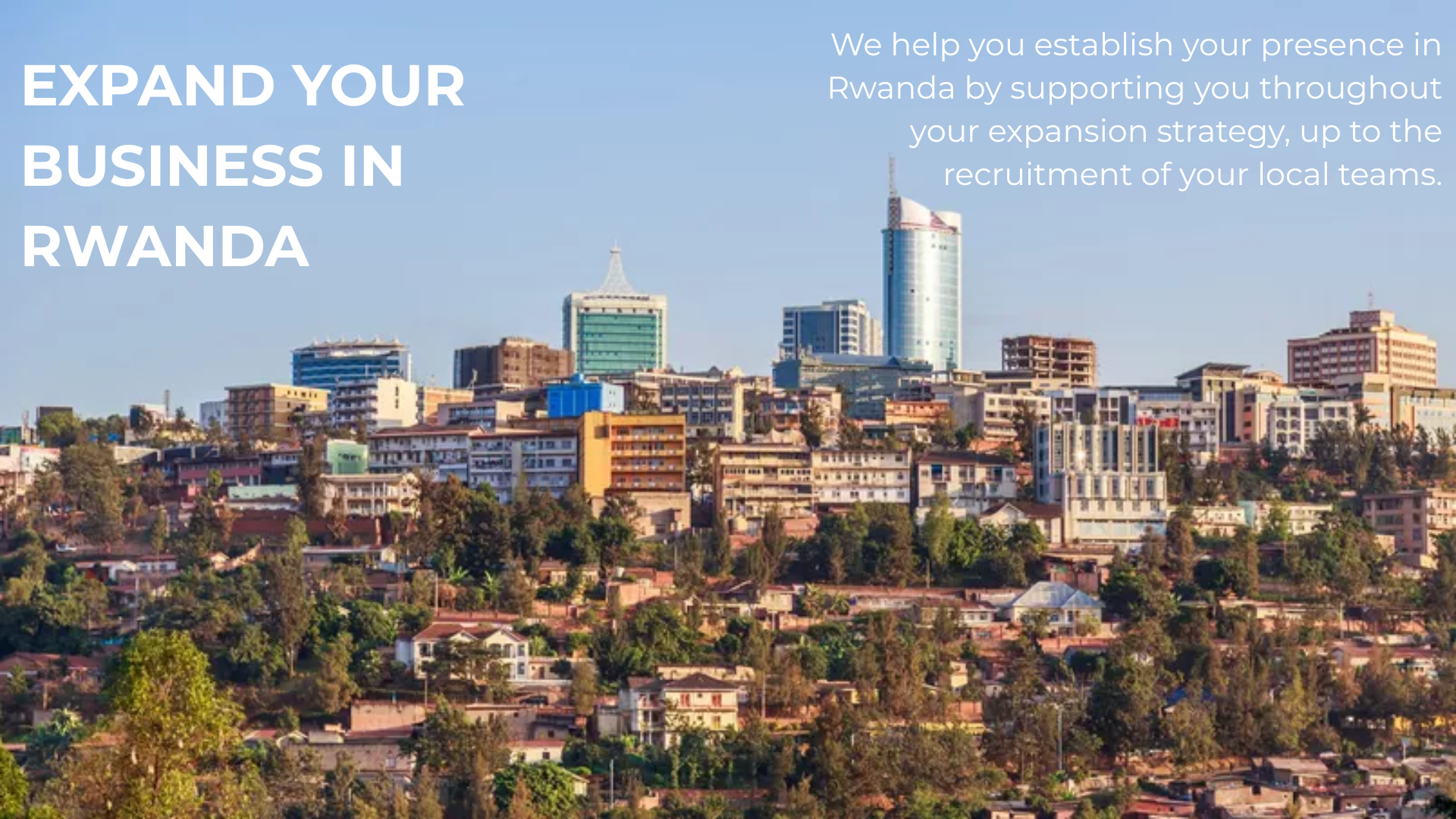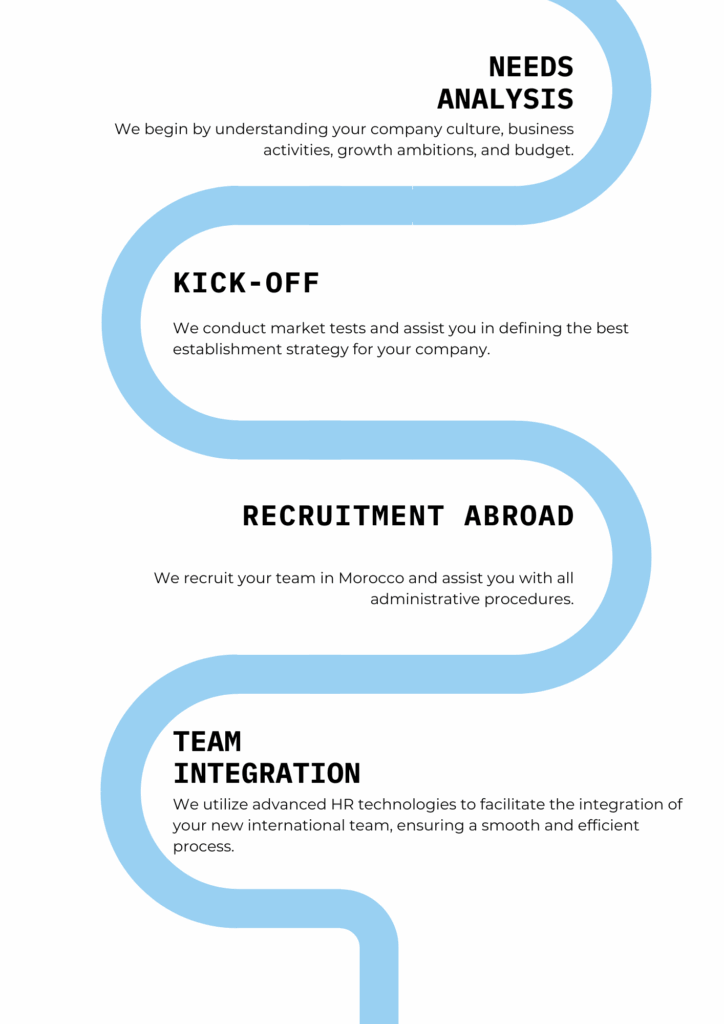
HOW WE RECRUIT IN RWANDA

RECRUITMENT IN RWANDA
Why expand to Rwanda ?
Rwanda is establishing itself as a strategic destination for companies seeking to establish a long-term presence in East Africa. Its political stability, recognized governance, and long-term vision supported by the National Transformation Strategy (NST2) attract many investors. The country stands out for its increasingly competitive business environment, strong innovation policies, and a firm commitment to the digitalization of the economy.
Kigali, the capital, has become a modern and connected regional hub in just a few years. Transport, telecommunications, and business infrastructure are rapidly developing. Rwanda is also positioning itself as an African leader in e-governance, cybersecurity, and emerging technologies, with strong public support for entrepreneurship and public-private partnerships.
The country benefits from a young, well-educated, bilingual (English and French) population, oriented toward new technologies and services. The education system emphasizes scientific, technical, and entrepreneurial programs, creating a talent pool in sectors such as healthcare, digital technologies, agriculture, and engineering.
Finally, Rwanda offers a transparent legal framework, simplified administrative procedures for business creation, attractive special economic zones, and tax incentives for investors. All these factors make Rwanda a solid choice for companies seeking a stable, innovative, and rapidly growing ecosystem.
What to know about working in Rwanda
Minimum Wage (SMIG)
Legal Working Hours
Types of Contracts
Paid Leave
Rwanda currently does not have a government-fixed national minimum wage applicable across all sectors. However, minimum wages may sometimes be set by industry or collective agreement. Companies are required to provide fair compensation equal to or above the prevailing sector standards.
The legal working hours in Rwanda are 40 hours per week, typically spread over five days. The standard working day is 8 hours, with regulated breaks. Any hours worked beyond this are considered overtime and must be compensated accordingly, either financially or with equivalent time off.
Rwandan labor law recognizes several contract types: fixed-term contracts (CDD), open-ended contracts (CDI), part-time contracts, and seasonal contracts. Oral contracts are tolerated only for a maximum duration of three months. Any employment contract exceeding 90 days must be formalized in writing.
Employees in Rwanda are entitled to 1.5 working days of paid leave per month worked, totaling 18 working days of annual leave after a full year of service.
FAQs
When recruiting in Rwanda, a written employment contract is mandatory if the duration exceeds three months. The contract must include legal details about the position, salary, working hours, duration, and probation period. Employers must also register the employee with tax authorities and social security organizations. In the event of contract termination, a legal notice period applies, depending on the employee’s seniority.
The most dynamic sectors in Rwanda include information and communication technologies, agriculture and agro-processing, renewable energies, healthcare, tourism, infrastructure, and biotechnology. The country is also heavily investing in education, digital finance, and the pharmaceutical industry, positioning these sectors as growth and employment drivers.
The probation period in Rwanda can last up to six months, depending on the contract type and job responsibilities. During this period, either party may terminate the contract with reduced notice, unless otherwise stipulated in the employment contract. The probation period must be expressly stated in the contract to be valid.
